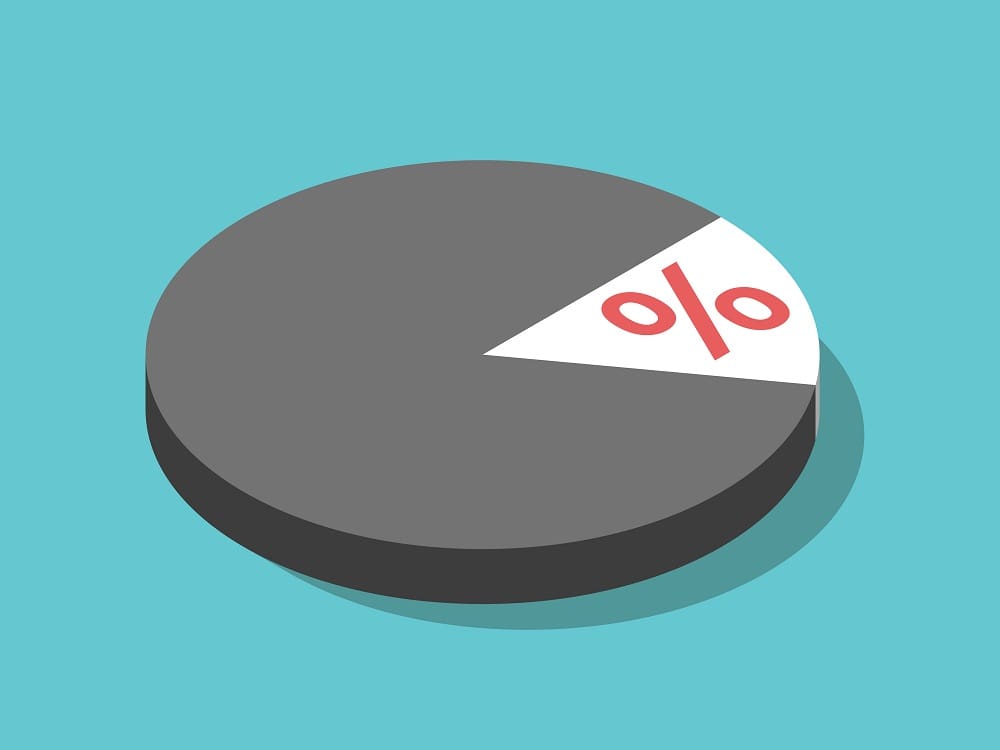Gavin/Solmonese’s Anne Eberhardt explores the opposition to the Corporate Transparency Act of 2019, stemming in part from privacy concerns and worry over the potential compromise of preserving market competitive forces.
On October 22, 2019, the House voted to pass the Corporate Transparency Act of 2019, a bill to require disclosure of the “ultimate beneficial owners,” or UBO, of U.S. companies. While you may not remember the news from that day – even if it had made the headlines, we’ve had a Presidential impeachment, a global pandemic and a major financial meltdown in the interim – something truly remarkable happened: The American Civil Liberties Union, the American Bar Association and the Heritage Foundation were united in their opposition to the law.
While its companion bill, the True Incorporation Transparency for Law Enforcement – or TITLE Act – has not yet reached a vote in the Senate, similar legislative efforts have either been adopted or are being proposed in other countries as alarms have been sounding at the growing awareness of the link between anonymously held companies and criminal activity.
The saga of the demand for UBO disclosures finds itself at the intersection of several deeply held and often conflicting democratic values: individual rights, privacy, transparent governance and rule of law. The narrative unfolds over decades with the emergence of innovative company structures, blockbuster revelations of flagrant financial crime and the increasingly zealous enforcement of anti-money laundering (AML) laws.
Company Structures
The purpose of the Corporate Transparency Act is “[t]o ensure that persons who form corporations or limited liability companies in the United States disclose the beneficial owners of those corporations or limited liability companies in order to prevent wrongdoers from exploiting United States corporations and limited liability companies for criminal gain; to assist law enforcement in detecting, preventing and punishing terrorism, money laundering and other misconduct involving United States corporations and limited liability companies; and for other purposes.”[1]
The desire for legal structures that preserve assets and limit liability is as old as commerce itself, but the history of the modern limited liability corporation – one of the primary vehicles used to create anonymous companies – began when Wyoming passed the first LLC law in 1977. Eleven years later, Delaware passed its own LLC law. The popularity of the LLC soared after 1993, when the Internal Revenue Service officially approved this new hybrid entity, which combines the liability limitation features of a corporation and the tax pass-through advantages of a partnership. More than two-thirds of all new companies are now organized as LLCs, with hundreds of thousands created every year in the U.S., the vast majority of which operate as legitimate enterprises.
Revelations of Financial Crime
The regime-toppling revolutions in the Middle East and Ukraine over the past decade led to the discovery that former presidents and dictators had spirited away significant chunks of their nations’ wealth, often into anonymous companies. In its explosive series from 2015, The New York Times reported that the high-end New York real estate market was being used by anonymous LLCs, trusts and other company structures to shield the identities of their owners, some of whom were likely engaged in criminal activity. There were even a handful of fishy shell companies that turned up during the investigations into the 2016 U.S. presidential election.
Following a series of hacker-initiated leaks of law firm records, the most famous of which was known as the “Panama Papers,” journalists exposed an entire infrastructure devoted to enabling a whole host of dubious behavior. Politicians around the globe have formed anonymous companies to hold assets, possibly to conceal bribes paid to them. Drug cartels launder the proceeds of their crimes through shell companies. Governments are deprived of tax revenue by the aggressive use of offshore tax shelters. And powerful individuals hiding behind LLCs may be improperly influencing elections.
Because of the scope of these discoveries, public policy advocates have grown increasingly alarmed at the deleterious effects of anonymous companies and have raised calls for laws requiring public disclosure of those who derive the economic benefits from these companies.
Opponents of UBO laws argue they are an unreasonable intrusion into the private affairs of law-abiding business owners and that, in an open society, the presumption of innocence rests at the heart of a trust-based social contract between government and its citizens.
It’s worth recalling that when the Bank Secrecy Act (BSA) was passed in 1970, the ACLU sued, in part because it was concerned that its own members could be revealed to a law enforcement regime with essentially unlimited access to everyone’s personal banking records. At the time, the ACLU was actively defending an array of controversial initiatives, many of which the more traditional elements of the country might have found objectionable. It wasn’t too difficult, then, to imagine that the ACLU’s donor list could be considered a target by certain politically conservative politicians.
The notion that our financial transactions ought to remain private may seem impossibly quaint by today’s standards, and the ACLU’s challenge ultimately failed when it was heard before the Supreme Court. Nevertheless, in his dissent, Justice Thurgood Marshall agreed with the ACLU that such government access to banking records “…surely will chill the exercise of First Amendment rights of association on the part of those who wish to have their contributions [to the ACLU] remain anonymous.”[2]
It’s clear that after 50 years, the government will continue to insist on access to private financial records. In its decision upholding the BSA, the Supreme Court held that the interests of the state in pursuing crime outweighed the potential privacy issues raised by civil libertarians, which were at that point only theoretical.
But it’s not too difficult to imagine even simple abuses of public registers. Let’s say Mary Jane Weedfield operates a legal marijuana business registered as an anonymous shell company, in part to prevent Moms Against Reefer Madness from gathering outside her place of residence, banging kitchenware to shame her for what they consider to be her unwholesome business. Or perhaps a member of the Glammer Guize decides to register the purchase of his 5th Avenue condo as an anonymous shell company to avoid throngs of adoring fans greeting him as he enters and leaves his apartment building every day. A public register would remove the privacy that most would agree these individuals are entitled to.
Those in favor of UBO disclosure are split between those who believe there is no valid reason for the ownership of companies to remain anonymous and those who concede it may be kept confidential but must be disclosed to government officials, who will then be entrusted with distributing it under strictly controlled circumstances, and only for compelling reasons.
Opponents of UBO disclosure insist that in addition to the issue of privacy, government should not – and cannot – be entrusted with sensitive personal information. They wonder how a UBO registry would be enforced and whether it is realistic to expect that representatives for the Guantanamera Cartel will be truthful when registering their company, which is in the business of trafficking fraudulent organic avocadoes from Mexico into the United States. They further contend that the law’s definition of “beneficial owner” is vague and could lead to confusion, potentially creating felons of otherwise law-abiding citizens who inadequately report this information. Finally, they point out that the federal government already has this information, warehoused by the IRS, which captures it for every entity that applies for an Employer Identification Number, the entity’s equivalent of a Social Security Number.
Zealous Enforcement
Perhaps the biggest fear, especially for the ABA, is an escalation of already burdensome regulatory requirements associated with any entity required to report information to the Financial Crimes Enforcement Network (FinCEN). From its inception, the BSA essentially deputized banks in the fight against crime, requiring them to report specific types of cash-based transactions and, as the law’s reach expanded, to any kind of “suspicious activity” they might observe in their customers’ financial transactions. Over the past 50 years, the government’s expectations of customer due diligence and transaction monitoring have exploded, along with the fines and penalties for less-than-adequate compliance with those expectations. And the list of non-banks that must report suspicious activity to FinCEN continues to expand, now including money services businesses, insurance companies, casinos, precious metals and stones dealers, securities dealers, auto dealers and real estate title companies, among others.
The ABA warns that the large number of attorneys who help form the companies affected by the law may be put in the untenable position of being required to report their own clients’ suspicious activity, which would violate the privilege that is the foundation of the attorney-client relationship.
And that may be exactly why the other ABA – the American Bankers Association – favors greater disclosure – to help spread around the overwhelming burden of AML compliance that has been placed on bankers when they fail to detect the Guantanamera Cartel’s transactions coursing through their databases.
The Future of UBO Disclosure
The Corporate Transparency Act stopped short of creating a publicly available registry. Instead, it requires compulsory UBO disclosure to FinCEN, while the TITLE Act envisions that states will be the repositories of this information. The differences between the two drafts must be reconciled before any law ultimately reaches the President, whose office has issued a statement supporting the legislation subject to certain modifications, including clarifying the definition of a beneficial owner, protecting small businesses from burdensome disclosure requirements and providing for adequate controls to protect the confidentiality of the information.[3]
The past half century of AML enforcement in the U.S. has accompanied a series of traumatic developments that government has sought to address. In the 1970s, the BSA was passed and subsequent updates to the AML laws in the 1980s and 1990s reflected fears about street crime and the drug wars. After the September 11 attacks, AML laws were further strengthened to require financial institutions to do more to flag terrorist financing.
Since the Great Recession of 2008 and the hacktivist revelations connecting anonymous shell companies to powerful and influential individuals, we have come to fear that governments and politicians are more corrupt than we thought, that a pernicious inequality has taken hold that may be compromising our democratic structures and that crime does indeed pay.
Is the demand for UBO disclosure an attempt to address these fears? With all the turmoil that will inevitably come in the wake of the COVID-19 pandemic, even if the law is not addressed, expect the controversy to continue.
[1] H.R. 2513 – Corporate Transparency Act of 2019, accessed May 4, 2020.
[2] U.S. Supreme Court, California Bankers Assn. v. Schultz, 94 S. Ct. 1494 (1974), Justice Marshall dissenting, pg. 416 U.S. 98, accessed May 4, 2020.
[3] Executive Office of the President, Office of Management and Budget, Statement of Administration Policy, HR 2513 – Corporate Transparency Act of 2019, as amended by Manager’s Amendment, October 22, 2019, accessed May 4, 2020.



 Anne Eberhardt, CFE, CAMS, is a Senior Director in the Valuation and Litigation Consulting practice at
Anne Eberhardt, CFE, CAMS, is a Senior Director in the Valuation and Litigation Consulting practice at 







